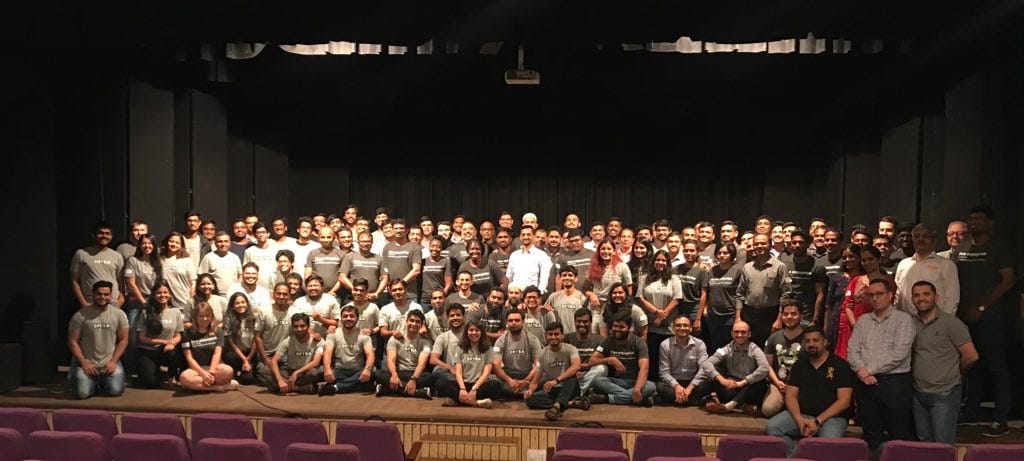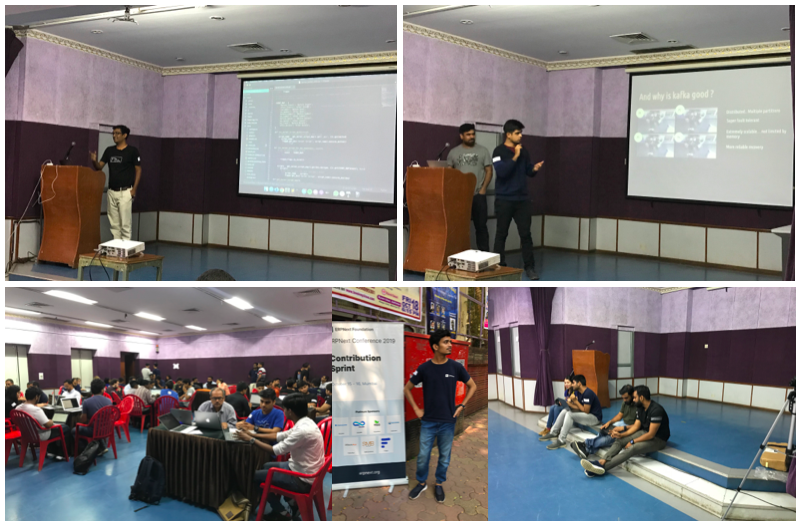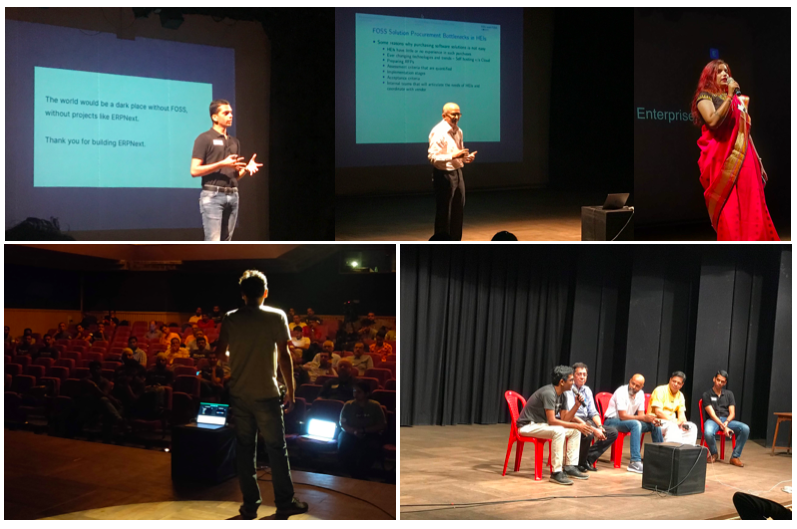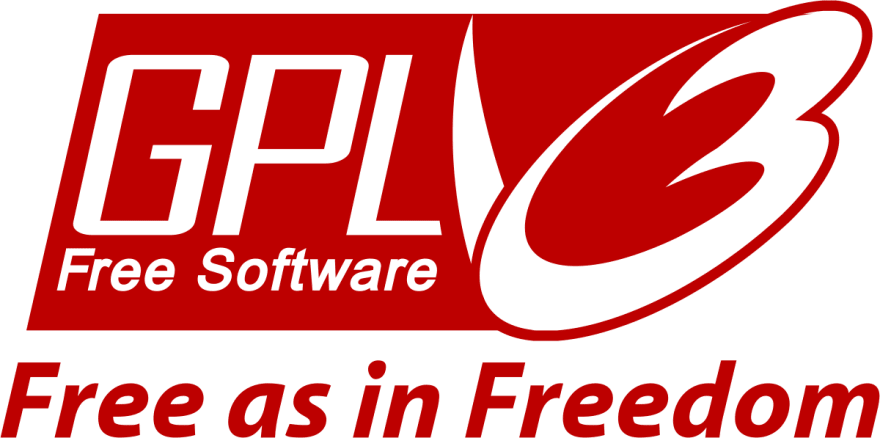
Photo from ERPNext Conference 2019
I attended the last year’s conference as the coordinator for merchandise. That’s all I could’ve contributed for after being 1 month in Frappe. Apart from ensuring the merchandise is shipped as expected, I didn’t really have an objective to accomplish. But this time, I was the DRI (You’ll know what I mean if you attended the event, for those of you who don’t, well, stay tuned for the videos here)
Event management was not my forte but I thought managing the conference wasn’t going to be that big a deal. I was so wrong. What seemed like a cake-walk at the beginning started to become a nightmare real quick. It all went down well in the end, and I’m thankful to everyone who didn’t leave my side even as things went sideways.
Talk is cheap, show me code
First introduced in 2018, the infamous contribution sprint was held once more with 65 participants actively working on issues, bug fixes, new features as well as contributing documentation and blogs. Developers from around the world connected with the core team of ERPNext and there was also an interactive live-coding session driven by Nabin Hait(Product VP at Frappe)
The second day was followed by discussions and talks on large-scale deployment architectures, scaling reports, Vue & frappe frameworks, integrations with 3rd party software like Alexa, Apache Kafka, Shopify and so on. Everything’s evolving so fast, it’s intimidating and exciting, all at once!
The best code is no code at all — Rich Skrenta

Photo from Contribution Sprint(Oct 15th–16th)
The sprint went on as planned with minor glitches like losing the videographer when the talks were about to begin, but overall, our community has expanded beyond what I could have imagined. We also realised the significance of meeting more often, we’re all trying to solve the same problem in silos. A crystal, clear revelation: there can be multiple solutions to a problem — but there will only be one best solution.
The FOSS Landscape
The third day was marked with the presence of eminent speakers from various industries, such as Kailash Nadh from Zerodha, Prof. Annegiri from VTU, Nikhil Sharma from ElasticRun, and many more! They all addressed the theme of this year’s conference in pristine fashion and set the stage for everyone: FOSS & Enterprise.
The FOSS landscape has explosively changed through the last five years and the new FOSS & Enterprise model is being deemed as a pragmatic solution to FOSS funding problems. The disruptive startups are forcing conventional enterprises to bend their way and embrace this because it’s more than just writing software, it’s a culture.
Be the change you wish to see in the world — Gandhi
As Prof. Annegiri envisaged FOSS for Higher Education Institutes to make them more self-driven and agile, to place equal emphasis on both theory and practice, he affirmed the fact that FOSS enthusiasts are everywhere and it’s slowing taking over all industries — be it education or financial solutions. The elegance is too hard to ignore. A revolution has begun!

Photo from ERPNext Conference 2019(October 17th-18th)
For the first time, I was given an opportunity to present my work. As a product expert at Frappe, I had worked with our users for implementation and support throughout the year & my presentation was around how we are busting traditional myths of ERP implementations, remotely. I was anxious and tried to use humour to mask my nervousness. Nobody snored or left abruptly during the talk, so I guess I did well there.
The Intoxicating Power of First Principles
First-principles thinking, which is sometimes called reasoning from first principles, is one of the most effective strategies for breaking down complicated problems and generating original solutions. It also might be the single best approach to learn how to think for yourself.
First-principles thinking is the act of boiling a process down to the fundamental parts that you know are true and building up from there. Several homegrown systems such as Backbone (Frappe Orchestration System for Deployment & Scaling), Events Streaming (inspired by Apache Kafka for handling real-time data synching) were brought forward. Then again, Rushabh Mehta brought back custom server scripts from the dead. Such projects are what bring groundbreaking ideas to reality.
A ship in the harbour is safe, but that’s not what ships are built for — John A. Shedd
This is what empowers innovation. Even if you aren’t trying to develop innovative ideas, understanding the first principles is a smart use of time. If you want to enhance an existing process or belief, continuous improvement is a great option. If you want to learn how to think for yourself, reasoning from first principles is one of the best ways to do it. Those who stayed in their comfort zone never did make it to the stars, after all.
Free beer
It’s not an ERPNext Conference if there’s no drama in it, but it was handled better than previous times. Remember, 2017? This year too, things spiced up towards the end and we encountered the never-ending argument: if ERPNext is open-source and free, why is it wrong to build on top of it, & commercialise as a closed source product? — because Stallman says so, my dear. It’s illegal.

ERPNext is licensed as GNU GPL v3.0 which gives you the freedom to run, study, share and modify the software. But, when distributing derived works the source code must be open-source, it is not permissible that you try to commercialise these derivatives as closed-source products. GPL requires you to release the modified source code only if you release the modified program.
‘Free software’ is a matter of liberty, not price. To understand the concept, you should think of ‘free’ as in ‘free speech,’ not as in ‘free beer’ — Richard M. Stallman
The result is that any software that uses any GPL open source component (regardless of its percentage in the entire code) is required to release its full source code and all of the rights to modify and distribute the entire code if you’re releasing it. If you’re using it for your own business, there’s nothing to worry about.
Let’s keep the legal aside for a while. It’s unfair, too. 80% of the program you built is derived from the open-source project and you never know who else might find the customised 20% useful for their business. That’s why it’s unfair. But then again, we live in an age where unfairness is something you gotta deal with. The world sucks, just deal with it. Think if the makers of ERPNext had this perspective, you wouldn’t have anything to fork in the first place.
Broken things can fix
In the past few months, we drifted apart as a community, there was no explicit outreach planned by Frappe and nobody else came up with anything either. An attempt for a meetup was initiated during February, but nothing much followed after that, everything was broken.
No amount of money ever spent will get us the time that was lost, but can we rebuild from here? I didn’t know what to expect from the community this time, unlike last time where the product governance was questioned. But after the past four days, one thing has come forward: we all share the passion for beating the shit outta ‘hot garbage’ proprietary softwares. (Clap if you get the reference!)
Sometimes broken things deserve to be repaired — Cam’ron
Vast coverage of diverse use-cases, implementation stories of various industries(driven by service providers we never even heard of!), large-scale deployments by enterprises choosing open-source over licensed software and highly motivated spirits of the community this year has instigated the fact that ERPNext is truly competent and as a matter of fact, enterprise-ready.
We can start once again because broken things can fix. The fight has already begun, the stage is set, we have an opportunity, and a grand journey lies ahead of us. It will be complete if we embark upon it together. Let’s free enterprise and look awesome while doing it. The world sucks, but we don’t have to. Cheers!




·
Nice information Chloros technologies